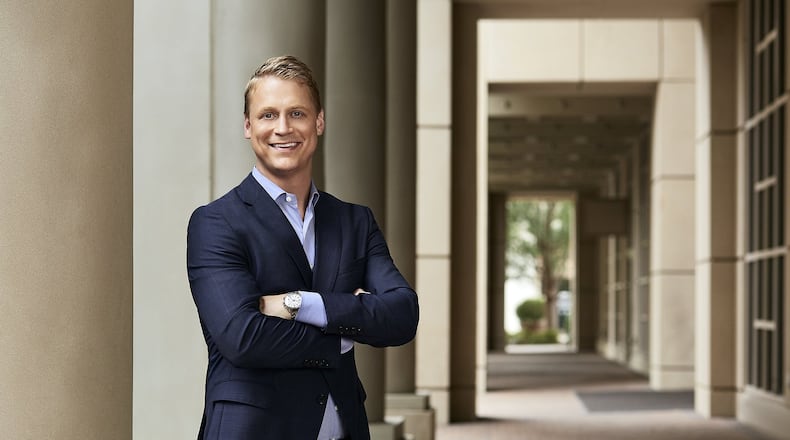I’ve recently released a book titled “What the Happiest Retirees Know,” after analyzing the results from a study I created based on years of inspiration and forethought. In the book, I literally list and explain 10 habits the HROBs — Happiest Retirees on the Block — seem to live by so that readers can learn from them. But, sometimes the best way to see the light is to make it dark. Only then can the dilated pupils and widened irises illuminate a vision born of necessity and buttressed by gratitude.
To wit, I decided to flip the script and explain the 10 habits best employed to live an unhealthy, insecure and joyless life. Essentially, consider these the habits you want to avoid. This will be done in two parts, with the first five habits below and the next five on WesMoss.com.
No. 1: Have terrible money habits
To be truly miserable, a household would have less than approximately $500,000 in savings with a mortgage so far from payoff completion that the single stream of income might as well be a trickle. It might sound counterintuitive to actively try to save less than $500,000, but it takes that kind of commitment to cognitive dissonance to truly miss the mark.
Keeping in mind that $500,000 is an important inflection point, set your sights on sadness-by-liquid-net-worth. Working forward, make sure NOT to apply the 1,000-Bucks-a-Month Rule. Based on a 5% annual withdrawal rate, this rule stipulates that for every thousand dollars in monthly income you want in retirement, you need to have saved $240,000. A happy retiree would make sure to double that, leading to a little more than $2,000 per month in retirement. In contrast, you’re going to fall far short and struggle to fill the gap between retirement income and expenditures. Luckily, this will be happening in the stage of life when opportunities come around less often and physical labor is harder on your body. Anxiety about the future will be replaced by anxiety about the present, and you’ll have unhappiness right where you want it.
No. 2: Be static and apathetic, with no “core pursuits”
It’s important to avoid travel, play or any sort of exploration that might add a new and enlightening perspective to life’s journey. A road less traveled must be that way for a reason, so stick to doing the same things you’ve always done. On the rare occasion that you find yourself on the verge of a hobby, make sure not to engage wholeheartedly and by all means, don’t commit to doing it regularly. HROBs have at least three hobbies on steroids, called core pursuits, that give them a sense of purpose and fulfillment. To achieve full depression and high blood pressure, you must resist the urge to actively participate in anything similar.
No. 3: Have unhealthy codependency with your kids
The happiest retirees’ adult children are out in the world living their own lives, rather than relying upon the financial capital of their parents. This, of course, does nothing to diminish the absolute love and joy between them. Independence fosters a more profound relationship of respect, and it’s vital for you not to have that if you wish to remain gloomy and regretful.
You have a couple of choices. One, have your grown children live with you. Keep them so close that you can barely share a roll of toilet paper without feeling an intense resentment for their life choices. Or, conversely, make sure they live so far away that every visit takes six months to plan and a handful of Social Security checks to pay for. Your love language should be “guilt trip” and make sure to speak it ad nauseam. Always wanted to see Europe? Put that dream on hold until you’ve bankrolled eight years of your granddaughter’s private school tuition. That’s your responsibility, right?
No. 4: Keep a divorce lawyer on retainer
The happiest retirees are married, give or take one divorce. Sure, they have their ups and downs with their happiness in marriage — life isn’t a fairy tale. Interestingly enough, though, happiness levels skyrocket at 40-plus years of marriage, making retirees two times happier than at any other point in their marriage besides their honeymoon phase. I call this the “We made it!” phase.
In other words, you must remain either diligently alone or have a high spousal turnover rate if you want to prevent a happily ever after scenario. That can mean mastering reclusiveness and forgoing eye contact with other humans or divorcing every partner who forgets to be perfect 100% of the time. Any hope of a wretched existence depends upon you resisting the urge to make someone else happy. Or worse, allow someone else to do the same for you.
No. 5: Be a taker, not a giver
Faith is important to happy retirees. What they believe seems less important than the fact that they do believe in something. They claim to attend church at least twice a year and on average once per week. This makes them 1.5 times more likely to be happy than you because your temple is on the couch watching football and over-serving yourself beer and chips. Did your team win? Great! That means you’ll be happy for a couple of hours before settling back into the overall malaise of a crestfallen retirement.
Happy retirees also volunteer and support the causes they believe in. Your absence from the Sunday services will help you ignore the ample opportunities to dedicate time, energy, resources, or all three to worthy causes. The Bible says it’s better to give than to receive (Acts 20:35) and my happiness studies agree. Therefore, keep your money and time to yourself. Bottle up the feelings. Otherwise, you might accidentally access a larger community of good people doing good works.
Conclusion
I know many HROBs. For this book, I enlisted the help of nearly 2,000 American retirees, asking them 35 questions about their habits and behaviors. If you’re truly looking to be unhealthy, insecure and joyless, you’ll want to study their behavior and do the exact opposite.
Wes Moss is the host of the podcast “Retire Sooner with Wes Moss,” found in the podcast app right on your smartphone. He has been the host of “Money Matters” on News 95.5 and AM 750 WSB in Atlanta for more than 10 years now, and he does a live show from 9-11 a.m. Sundays. He is the chief investment strategist for Atlanta-based Capital Investment Advisors. For more information, go to wesmoss.com.
DISCLOSURE
This information is provided to you as a resource for informational purposes only and is not to be viewed as investment advice or recommendations. Investing involves risk, including the possible loss of principal. There is no guarantee offered that investment return, yield, or performance will be achieved. There will be periods of performance fluctuations, including periods of negative returns and periods where dividends will not be paid. Past performance is not indicative of future results when considering any investment vehicle. This information is being presented without consideration of the investment objectives, risk tolerance, or financial circumstances of any specific investor and might not be suitable for all investors. This information is not intended to, and should not, form a primary basis for any investment decision that you may make. Always consult your own legal, tax, or investment adviser before making any investment/tax/estate/financial planning considerations or decisions. Investment decisions should not be made solely based on information contained in this article. The information contained in the article is strictly an opinion and for informational purposes only and it is not known whether the strategies will be successful. There are many aspects and criteria that must be examined and considered before investing.
About the Author
Keep Reading
The Latest
Featured



